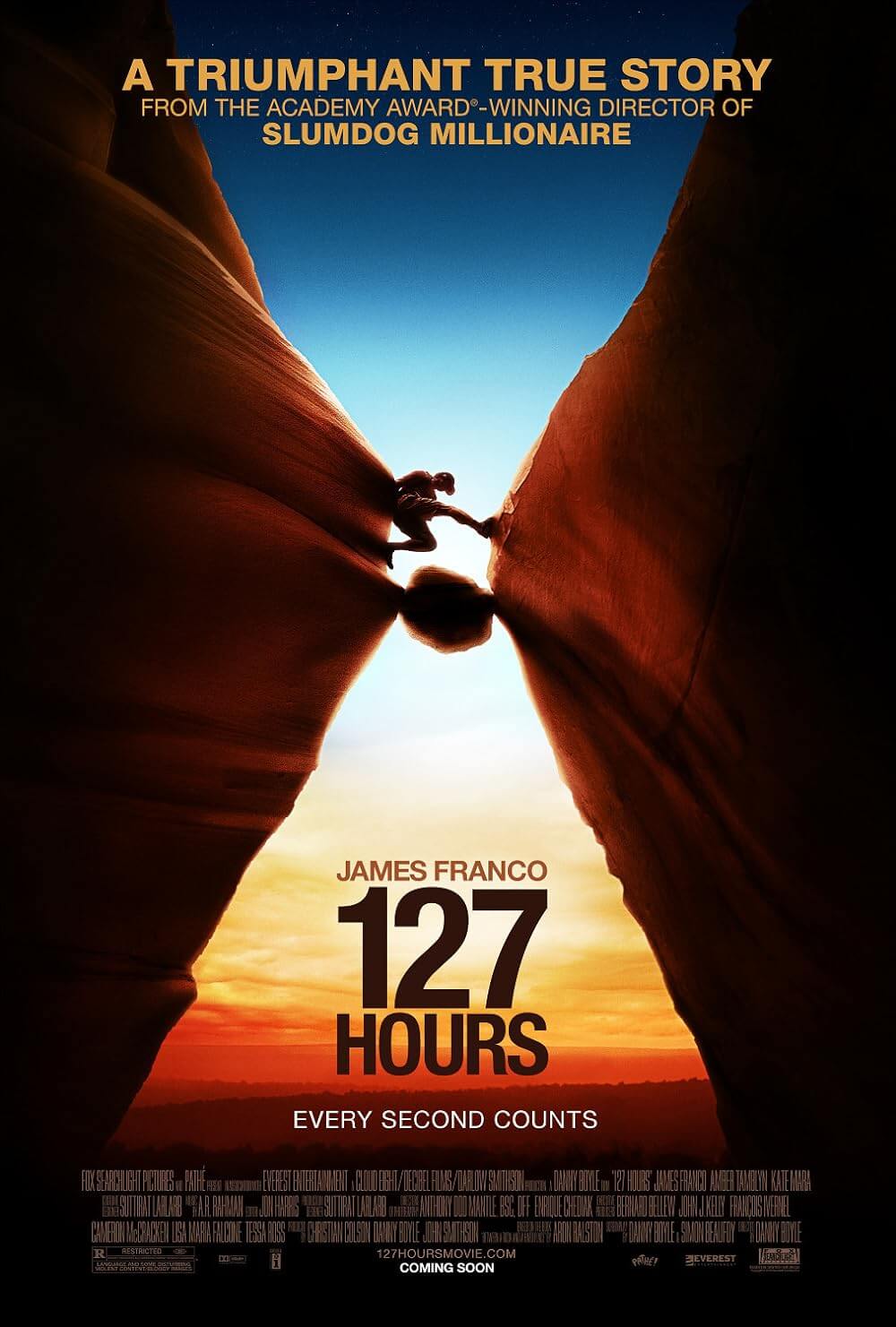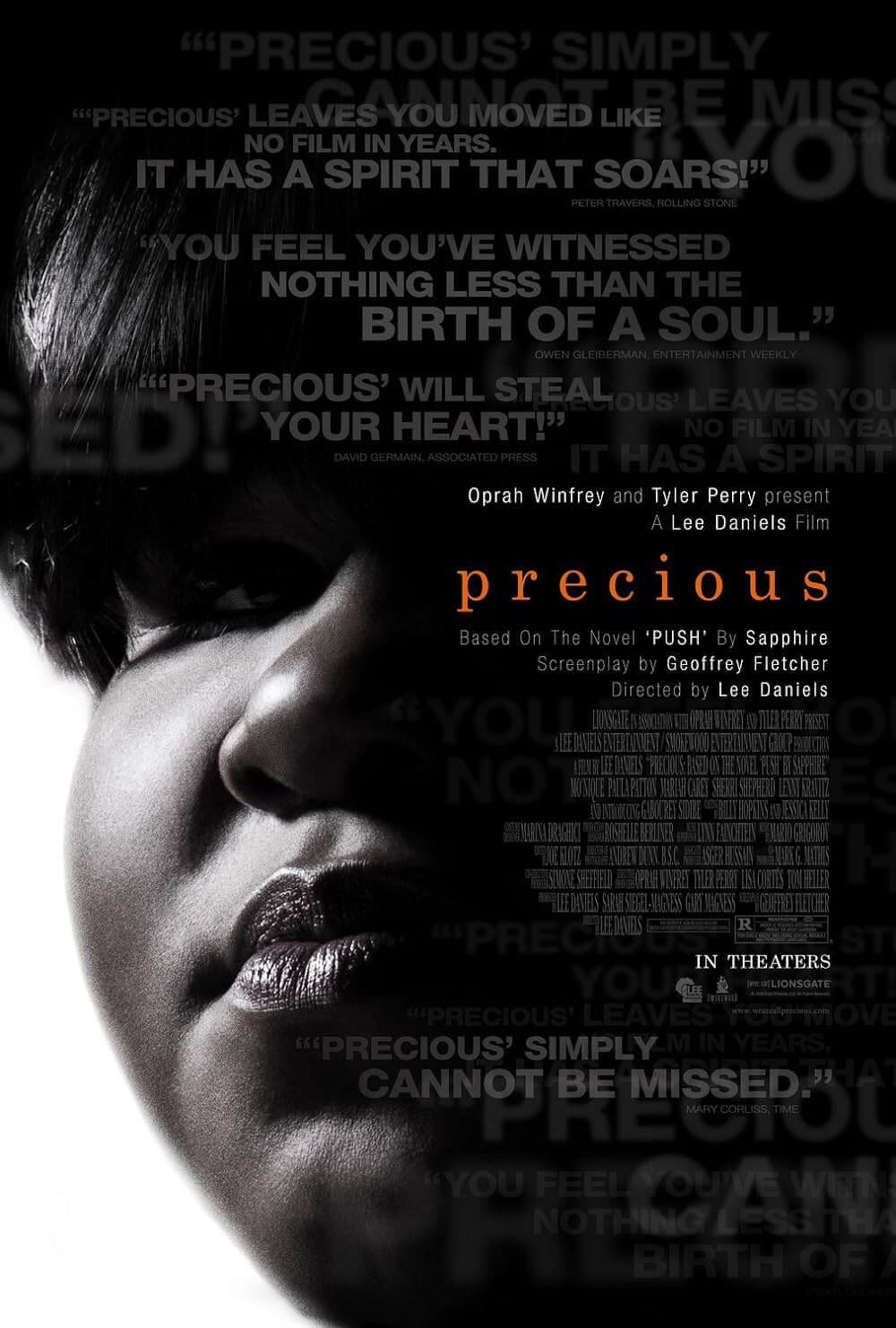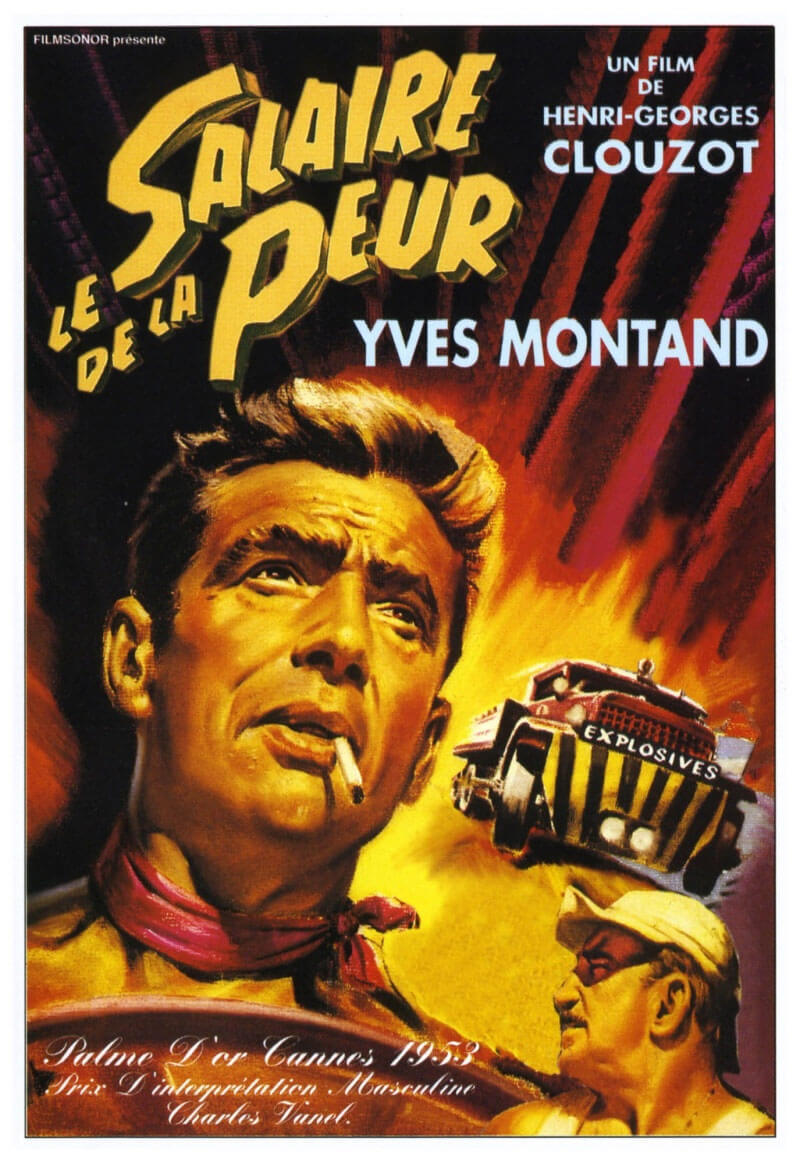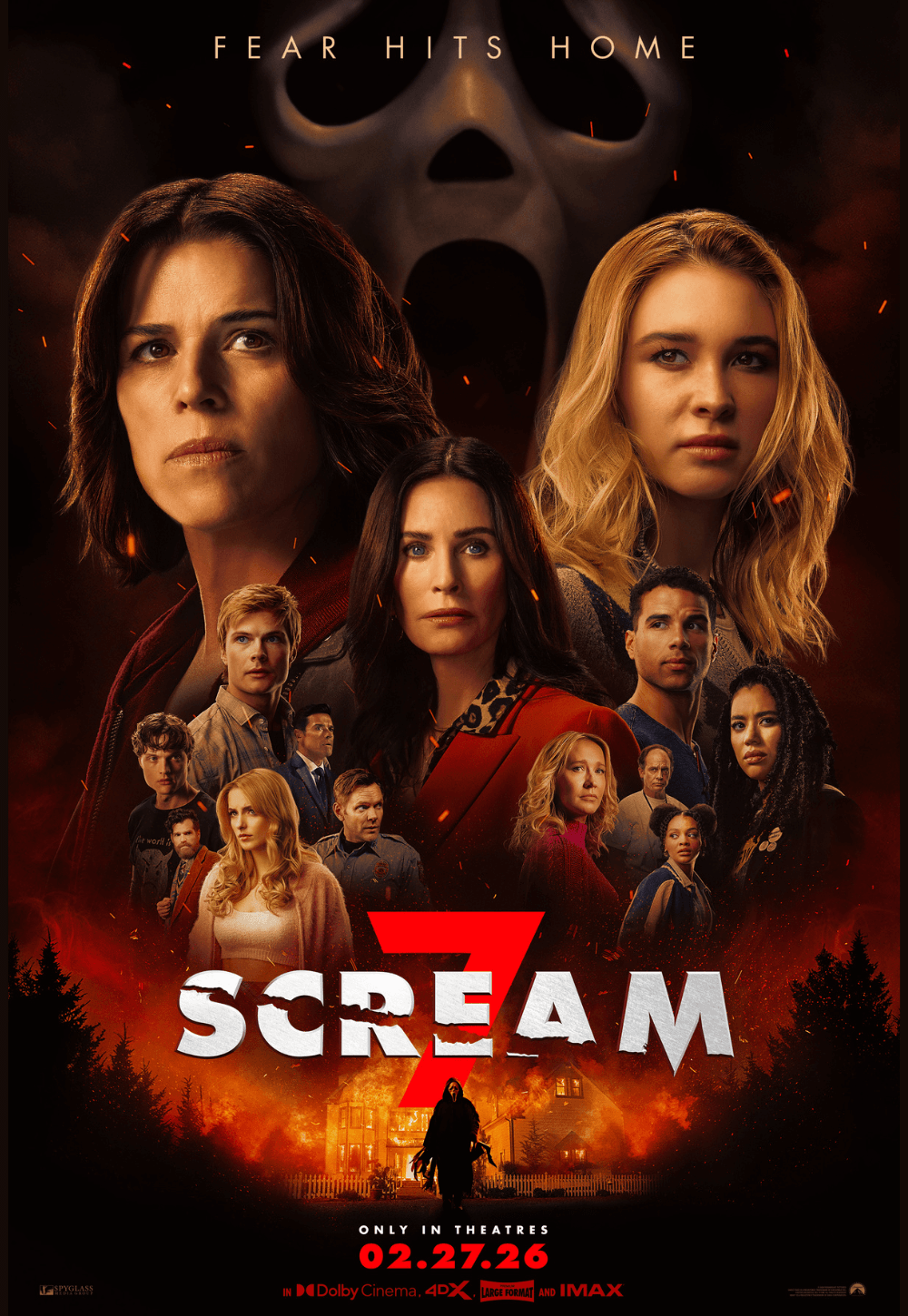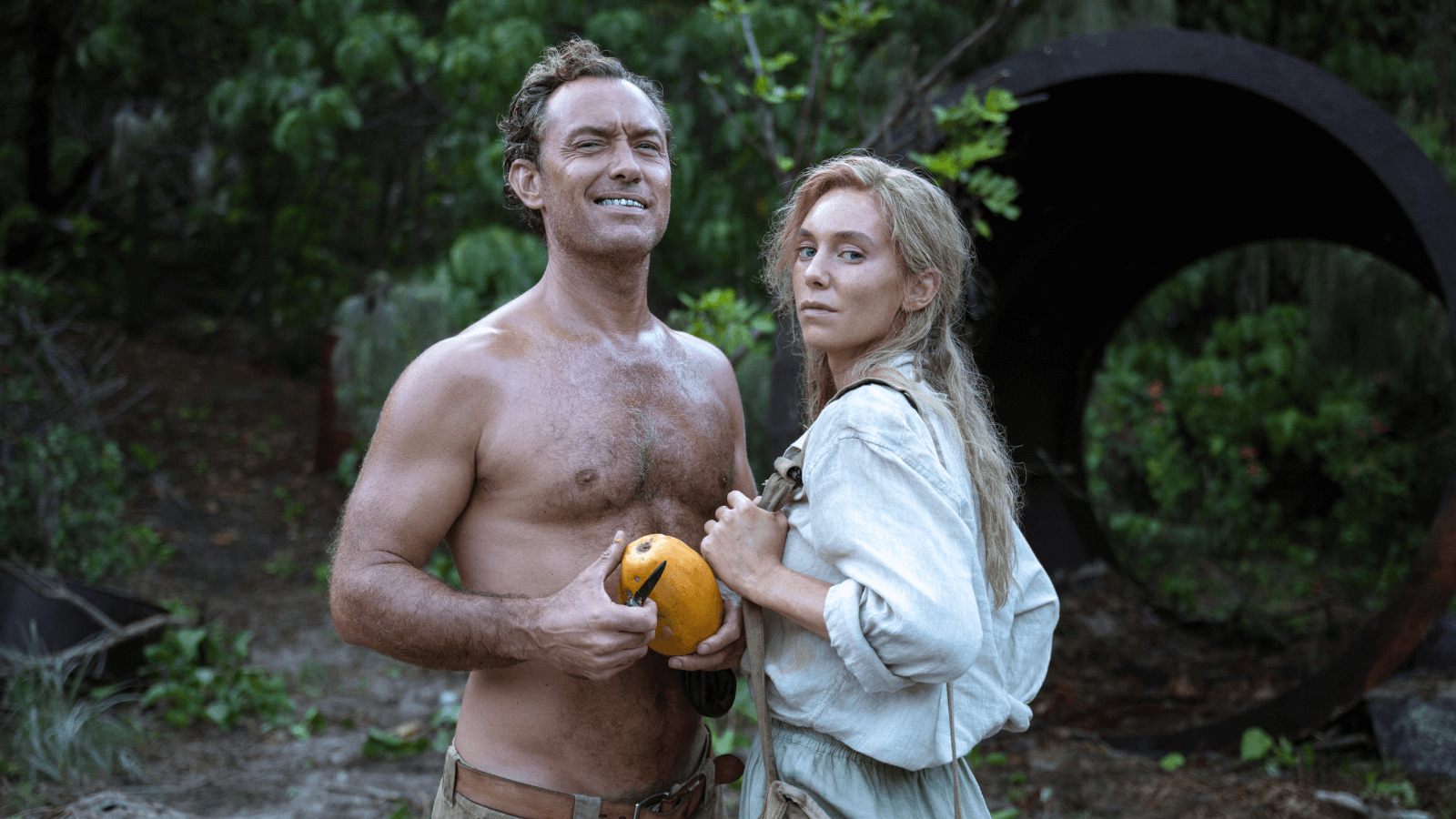
Eden
By Brian Eggert |
Humanity just can’t have nice things. Eden is the true account of a philosopher who, in response to the rise of German fascism in 1929, secures a few dozen acres on a remote, uninhabited Galápagos island, Floreana, to launch an ideal society based on his theories, which fail to take shape in his still-in-progress manifesto. Joined by his lover and acolyte, the societal dropout’s plans are spoiled when others arrive, bringing their neediness and envy to his sanctuary. With a cast that includes Jude Law, Ana de Armas, Vanessa Kirby, Daniel Brühl, and Sydney Sweeney, Eden might’ve been a big-screen antithesis of HBO’s The White Lotus, with a bunch of attractive people surviving not on a lavish resort but a harsh island with few fresh water sources and unforgiving conditions. Instead, largely thanks to the graceless and unsubtle direction by Ron Howard, the material’s potential descends into an ungainly experience that alternates between thrilling and overwrought.
Admirably, Howard likes to experiment in the director’s chair, leaping from one genre to another in his 48-year career, including raucous comedies (Grand Theft Auto, 1977), a string of Oscar bait (A Beautiful Mind, 2001), and his undercooked adaptations of Dan Brown’s Robert Langdon book series. Despite the variety of his output, most of his films in the last 25 years are based on true stories. But Howard’s one constant is his aptitude for crowd-pleasing features that seldom challenge his audience. Indeed, he seems ill-suited for this tale, which portrays humanity at its worst. Written by Tetris (2023) scribe Noah Pink, the story reminds audiences that hell is other people. But given that Howard usually traffics in optimism and almost always delivers a happy ending, he doesn’t have the dark side needed to confront this theme. The mostly skilled cast and promising concept aside, Howard struggles to find a visual or tonal constant throughout Eden, and he doesn’t have the edge needed to cut into humanity’s dark underbelly and let this story come spilling out.
This is unfortunate, as the story might’ve resonated given the sociopolitical parallels between then and now. Dr. Friedrich Ritter (JLaw) abandons Germany and conventional society to escape an insane world’s pattern: “Democracy, fascism, war. Repeat.” His partner, Dore Strauch (Kirby), who has multiple sclerosis, joins him while he writes “a radical new philosophy that will save humanity from itself.” Ritter pontificates that the true meaning of life is pain, which leads to truth, which leads to salvation. But German papers fascinated by his expedition have published his letters, prompting another group of like-minded travelers to seek a new life on Floreana. Enter Heinz Wittmer (Brühl), a veteran of the Great War, and his much younger second wife Margaret (Sweeney), who travel with Harry (Jonathan Tittel), Heinz’s son from his first wife, in hopes that the climate will help Harry’s tuberculosis. They arrive in the winter of 1932, wholly unprepared for the harsh conditions, yet they prove surprisingly tough and willing to overcome whatever challenges lie ahead.
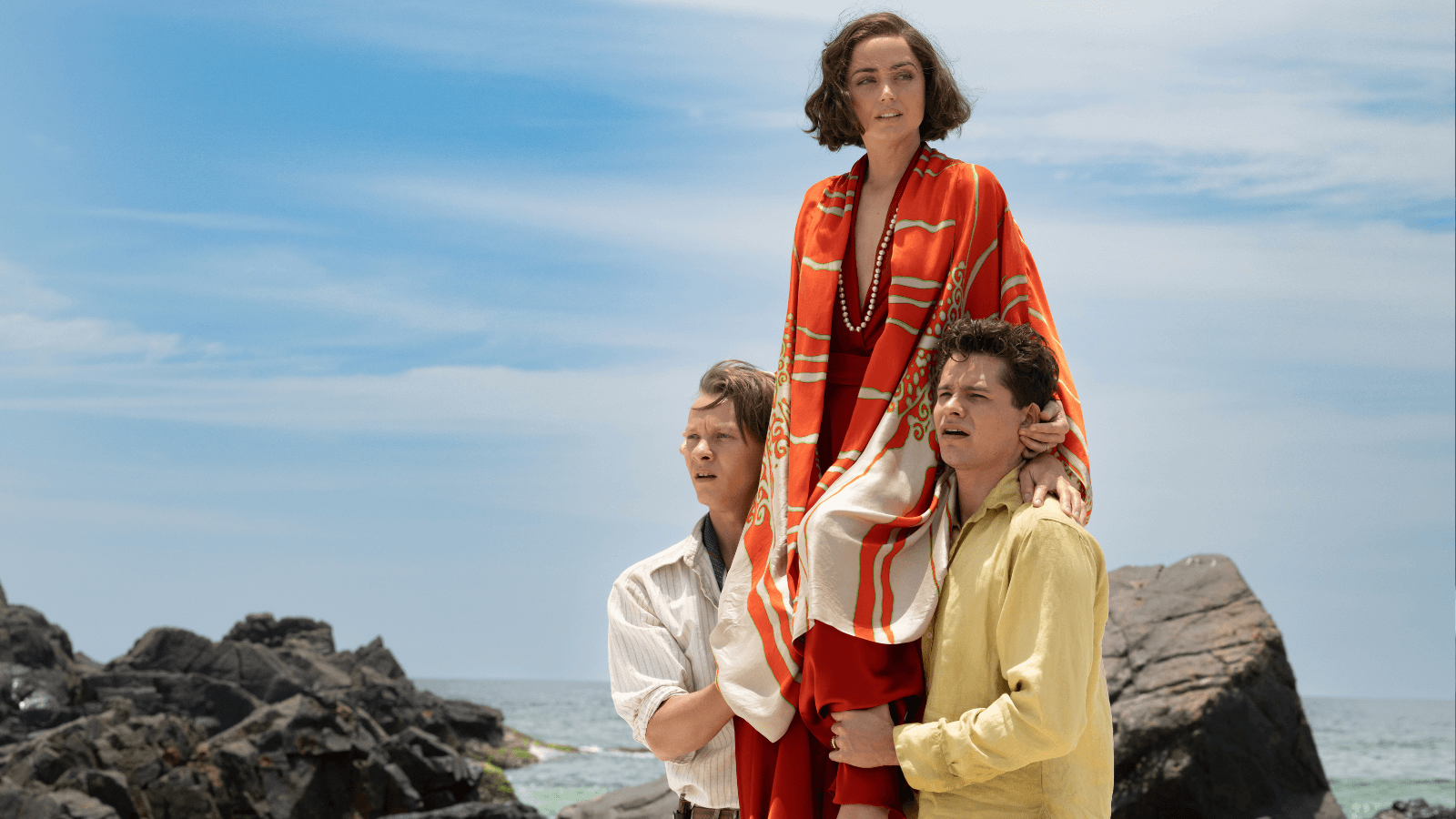
The same cannot be said of the Baroness Eloise Bosquet de Wagner Wehrhorn (Ana de Armas), a spoiled socialite who plans to build a hotel-resort on Floreana and attract millionaire clientele. Aided by her occasional lovers—an engineer, Rudy (Felix Kammerer), and loyal subject Robert (Toby Wallace)—the Baroness spoils any hope of Ritter’s hard-won alternative lifestyle. After all, Ritter is a man so committed that he preemptively extracted all of his teeth to avoid the risk of infection. The Baroness cannot last an afternoon without swimming in the Wittmers’ drinking water and, much later, after depleting her resources, orders her lackeys to steal their canned food. The inverse of Ritter’s essentialist undertaking, the Baroness makes for an effectively detestable villain. She declares herself “the embodiment of perfection,” but instead, she embodies the excesses of the wealthy, who overindulge and waste natural resources, all while wearing their class as a shield. Much later, Rudy describes her as a “black hole” that consumes everything—even though the term wouldn’t be coined for a few decades.
Howard’s visual approach to Eden registers as erratic and inconsistent, alternating between modern drone shots that sweep over the island and cinematographer Mathias Herndl’s overuse of shallow focus and close-ups. Howard also injects plenty of nudity and sex into the proceedings, and it feels forced—as though trying to accomplish serious and adult subject matter by convincing his actors to disrobe. Just as disjointed as the style are the performances, some of which prove quite assured, such as Law, Kirby, and Brühl. Wallace continues his streak of playing aggressive young men (see last year’s The Bikeriders, among others), and he’s intimidating as the Baroness’ violent devotee. De Armas is excellent insofar as she delivers a hateable character, but the movie loses its momentum once she exits the picture. Margaret is Eden’s moral compass, but Sweeney isn’t up to the task, often delivering a performance that can only be called unconvincing and at times unintentionally funny. Her German accent drifts into American and British, and she never quite sheds her twenty-first-century sensibilities. It’s a shame that Howard places his ensemble’s weakest performer at the center, leaving her to drag the material down in the final stretch.
When in doubt, Howard and editor Matt Villa cut to Galápagos animals preying on each other, underscoring the film’s vague Darwinian theme. But just as Ritter vows to shed the influence of the pious and debauched but struggles to settle on a purpose of his own, Howard and Pink’s screenplay can’t settle on a throughline for Eden. It’s not so much about survival of the fittest or a microcosmic demonstration of Ritter’s theory about societal patterns (“Democracy, fascism, war. Repeat.”) as a censure of humanity’s self-proclaimed superiority, giving way to an undisciplined and reckless relationship with Nature. Mainly due to misguided religious beliefs that claim humanity has “dominion” over Nature, many of the characters remain at odds with their surroundings. Instead, their infighting over resources and taking of sides reflects humanity’s greed and corruption. Only in the postscript—revealing that Wittmer’s hard work eventually paid off with the still-open Wittmer Lodge—does the film find any meaningful resolution: that survival depends on humanity harmonizing with its surroundings. However, Howard seems more concerned with the conflict than with the ideas behind it, and Eden feels rather hollow as a result.
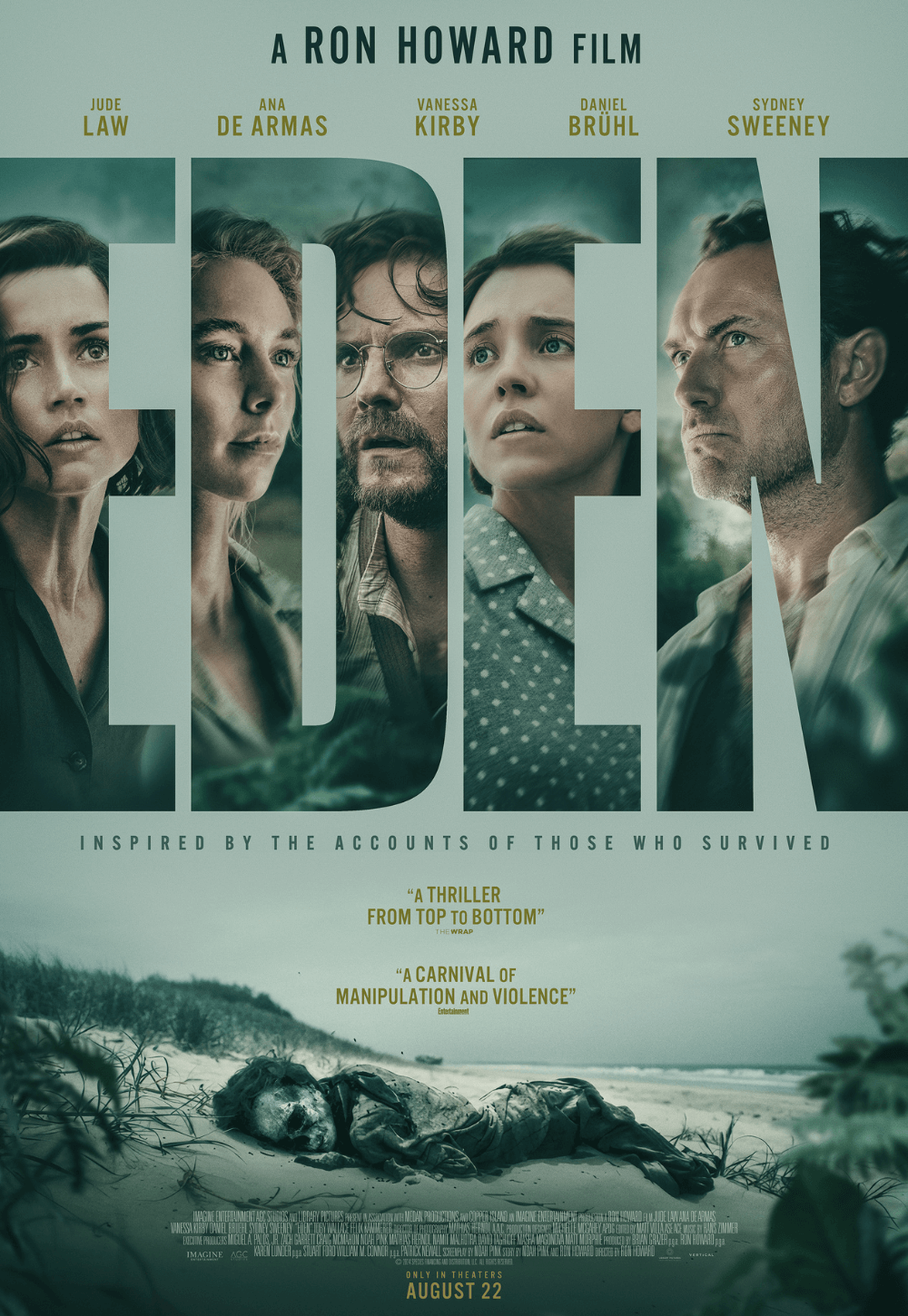
Thank You for Supporting Independent Film Criticism
If the work on DFR has added something meaningful to your love of movies, please consider supporting it.
Here are a few ways to show your support: make a one-time donation, join DFR’s Patreon for access to exclusive writing, or show your support in other ways.
Your contribution helps keep this site running independently. However you choose to support the site, please know that it’s appreciated.
Thank you for reading, and for making this work possible.
Brian Eggert | Critic, Founder
Deep Focus Review


